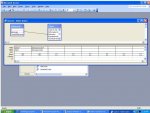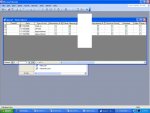I looked thru the forums and didn't seems to get what I needed;
I want a count query to give me all fields in "group by" column, and assign 0 to where there are no count for certain fields.
I tried to set Outputallfield to "yes" but got an error message saying that there is a data type mismatch. The query ran just fine when outputallfield was set "no" and gave right results.
Can anyone help, please?
I want a count query to give me all fields in "group by" column, and assign 0 to where there are no count for certain fields.
I tried to set Outputallfield to "yes" but got an error message saying that there is a data type mismatch. The query ran just fine when outputallfield was set "no" and gave right results.
Can anyone help, please?


